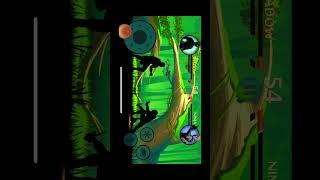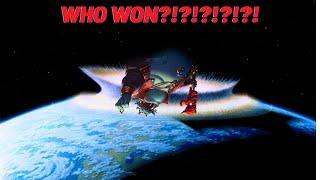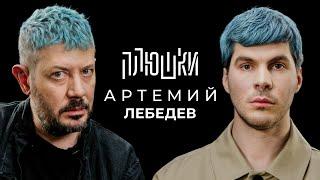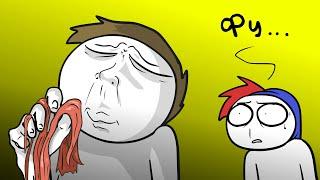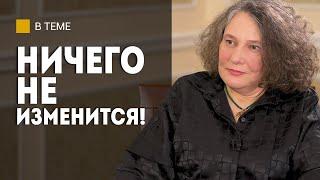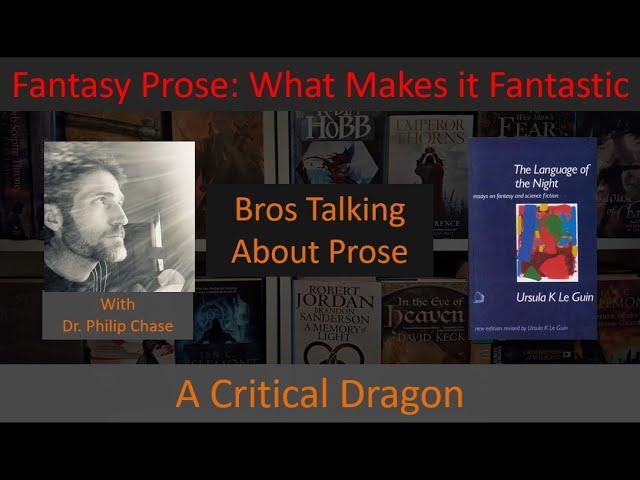
Fantasy Prose: A Discussion about How to Put the Fantasy in Prose
Комментарии:

1st, Happy Monday AP & PC
Ответить
i was keeping it together 'till the pirate cat showed up :D :D philip, i expect to see payback!!!
Ответить
I compliment you both so often for the content of your videos, that I forget to tell you how fantastic this booktube-born friendship is to see. Watching the two of you can be properly hilarious.
Ответить
What a literary tightrope authors must navigate to create prose that will resonate with such a diversity of readers; their tastes, culture, experiences, etc. And yet, we still have authors that are universal acknowledged as masters. What makes their writing transcend these reader differences?
Ответить
Is chapter length just a reading preference? Or does it play a deeper role in prose structure? Erikson and ICE prefer long chapters compared to many of their contemporaries. Cheers!
Ответить
No one ever explained vorpal sword... Sometimes a nonsense word will do. Maybe.
Ответить
Good video. Finding words I haven’t heard or read before is half the fun for me. Like when I read the Thomas Covenant series, I had never heard the word Mendacity. You wanna talk about someone’s prose being dense, Donaldson can be dense, but decoding it makes me happy.
Ответить
Wonderful discussion! Maybe it wouldn't be a good move to change my channel name to "Jo'anna?" 😄 I intend to read Le Guin's essay and appreciated all the points you two brought up. I never before thought about how fantasy authors, in an attempt to have more modern prose, can inadvertently cause their books to become more dated over time. That's an interesting thing to consider!
The pirate kitty was very cute, and it was nice of you not to include certain images of stealing candy from children!

I think it should be noted that while the use of archaic language is used to avoid associating a fictional world with any specific, modern region, it's still very Euro-centric. I'm curious what you guys think is the best approach for a fantasy story that takes place outside the traditional Medieval-type setting, especially where English is not the assumed or understood language. A book that comes to mind is the Poppy War by R.F. Kuang, which is clearly based on a fictional version of China/Asia. I found the use of colloquial language (especially the multiple uses of modern swear words) to be distracting, but at the same time, "thee's" and "thou's" certainly would not have worked in that setting.
Ответить
Great video! I'm so happy to hear people really dig into fantasy prose, it makes me feel less weird for thinking about it as much as I do. I love what you said about prose being the book, not simply a part of it.
Do you have many thoughts on pushing the boundaries of language within fantasy? In the sense of grammar and style. Sure, things like what modernist and postmodernist writers do/did, but also...whatever else fantasy authors might come up with to push the genre in new directions. So what I mean is, I am interested in writers trying to make the prose itself somehow fantastical, rather than focusing on fantastical events and ideas which are conveyed using (relatively) mundane language. Many authors use the sort of "elevated" language Le Guin discusses in her essay, and I totally agree with her and the two of you on that, but I don't think that's quite what I'm trying to get at. I feel like there is a pretty huge space being left largely unexplored in terms of the language used in fantasy. The poetry of Gerard Manley Hopkins is closer to what I mean: basically incoherent at times, maybe, but something about the sound and flow of the words bring out a sense of the sublime, even when their literal meaning is lost on the reader.
Is it that authors (or, probably more likely, publishers) worry that having that extra layer of separation between the reader and the work will be too much and make the work incomprehensible? I.e. that fantastical elements plus experimental grammar/style is considered "too challenging," that people have enough to overcome by grappling with the fantastical elements OR the writing, and can't handle both simultaneously. Is it simply because what I'm vaguely describing is extraordinarily difficult to accomplish, if not outright impossible? Am I too far up my own ass to realize that plenty of authors are doing exactly what I'm talking about, but I arbitrarily dismiss them because I'm trying to feel smart? Do I just need to stop smoking the English class crack pipe and go outside more often?
Thanks again for the great discussion, and if you make it this far, I hope I don't sound like a complete madman. Cheers.
Edit: typo

Such a wonderful discussion! I’m not a native speaker, so I‘m much more tolerant towards English fantasy.
Generally one thing that helps my immersion is when author never use abstract words that don’t fit into their invented society. Eg if characters use the word “tolerance” that signals en enlightenment state and does not work with a typical feudal society. Does this belong to the prose discussion too?
Have you seen the vid from Legendarium about fantasy prose? They measured the ratio between latinate and germanic word usage. Interestingly I prefer the authors with a high ratio of germanic words .

Verily, I say unto thee, smashing video bro. I remember when I started exploring the history of the genre and read older books, I often came to this realisation that "this book would never get published today". And I suspect that almost every reader has that same realisation once they broaden their reading. It's a bit unfortunate for those who feel inspired by older books and feel that they can write something similar.
Ответить
As the one who brought up the elitism point, I'd like to reiterate there is a lot in Le Guin's argument I agree with. Especially with the added context and exploration in both Philip's video and this one.
The essay reminded me of Scorsese drawing a line between 'Cinema' and 'Marvel' - and it had a taste of the idea that there is a good and proper way of using language in fantasy and a bad way. Not saying that was the main gist of the essay. Not even saying there is no merit whatsoever to that argument even if it was.
Of course prose and style are vitally important to consider for an author, both in how it represents itself and how it connects with the audience.
But in a time where the landscape of fantasy is constantly growing and diversifying it becomes ever harder to pin down what the 'prose of fantasy' is.

Again a very educational and entertaining video. But, and i don't mean to be rude, the comments are even more fun. And maybe almost as educational 😁.
Ответить
Here for the comments section.
Ответить
Well I really enjoy your videos and additionally your comment section is just awesome.
From people who take the discussion of the video even further to poets who can't keep their livelihood out of a video on prose. You really get wonderful content here.
Since I'm form Germany and my english skill are sadly nothing compared to your awe inspiring editing skills I get pulled out of a narrative quite often if the pile of words that I don't understand reaches a certain level.
I can't remember having problems with the stuff that I read in german.
But than again I realized when I discovered your channel that I read until this point like a half brain dead person. Or you could say that I missed the metaphorical side of most stories.
"The cold dead eyes of a super villain." That had me cracking up.
Guess the visual part of your videos is now getting more important. I used to hear your videos as a podcast but now I will need to watch it too Don't want to miss out on these juicy fireballs. :D

One thing that is also really interesting is how prose is used in historical fantasy or used in fantasy set in a specific time period since here you often don't want a mythic feel or you want a different kind of mythic feel. Often I find that authors in historical fantasy uses specific words from the culture especially titles, where you don't really use archaic language but you don't use slang which obviously refers to the modern world. With regards to YA fantasy I find that fish out of water characters are actually not very common in the books I have read, since they often slow down the narrative and you want to keep the pace fairly fast.
Ответить
IMO, hearing AP say “Chad” is as anachronistic as hearing a knight saying it.
Ответить
I have already mention GGK as a good example on Philip’s video and with your excellent videos on the Prologue of “Tigana”, I will leave it at that. But another I find interesting is Ken Lou: His prose in the “Dandelion Dynasty” makes his stories inspired by Chinese history, highly accessible for a foreign audience.
Norway is a spesial case when it comes to prose: After a couple of years under Danish rule (with the many, many Norwegian dialects spoken and Danish as the written language of Norway) when it came to what should be the written language of independent Norway, two schools arose: “Bokmål/Book Language” used by the majority, which “Norwegianized” Danish, and “Nynorsk/New Norwegian” which tried to summarize the many dialects into one written language. Given Nynorsk is used by a minority, “hardcore” NN words can be quite difficult for most Norwegians, even if it in theory is taught side by side: If one use hard NN, that often sounds quite medieval for to BM-users, so if it is often softened in daily speak. But the «archaic poetry» of Classic NN, I feel fit quite well in fantasy, such as a translation of LotR, or historic fiction, especially set in the Viking age.

I was thoroughly "edutained" by this discussion. I enjoy coming across words I don't know--either made up or not--in fantasy prose. It gives me an opportunity to expand my vocabulary or my fantasy lexicon. Therefore, I'm always surprised when other readers complain about it. And I enjoy a variety of prose styles. I think I'd become bored with reading if all novels were written the same way.
Ответить
Cat pirate is an improvement. Glad to see your editing skills put to the test
Ответить
We are so fortunate to have you both and these conversations. I'm always learning from you both. Thank you!
Ответить
I just witnessed some world-class editing.
Ответить
Great discussion! I was watching the Hemingway documentary the other day and wondering if someone could write (or has written) a second-world fantasy in his style. Could the short declarative statements and leaving things unsaid work in a setting and culture that is unknown to the reader? Is there an Elmore Leonard of fantasy?
Ответить
Is it just me, or do your discussions get better and better? Great conversation, I love watching your videos, I consider the time allocated to your videos time very well spent.
The parts about the nefarious Dr. Fantasy are hilarious. Philip with the "cold dead eyes of a super villain" made me laugh out loud :)))
I am not good with poetry, so I will stay out of that thread,
I'll leave it to the ones who are more... well read :)
Cheers and see you in the next one!

And the adds kicked in right after we got to see the villainous photo of young Dr Phan'tasy! Even the video wanted to escape that scary moment! Can't wait to finish the video and reread the poem thread. 🤣
Ответить
Less than 4 minutes in, this is already phenomenal and extremely encouraging and helps me to be okay with my tendency toward an elevated prose style…
I’m not writing a cosy mystery or an afternoon romance.
I’m writing an apocalypse story with a lot of thematic things that have been on my mind for 2 decades, things that relate to events in my life that have shaped my entire worldview, for whatever its flaws and everything.
So it has to be heightened. It can’t be laidback.
Thank you for this.

I feel like I'm back in a college class, but I'm having so much more fun than I did back then! Thanks for the laughs, and the amazing discussions!
Ответить
My first time here, after seeing A.P. on Mike's Book Reviews. And oh my god...the pirate cat was amazing. The discussion was really good, as well. Glad to be here.
Ответить
Pirate cat should get its own trilogy, already!
Ответить
So pirate kitty, The Pets of Locke Lamora?
I do like word puzzles and do look for anachronistic or out of place phrases. For example if in Kharkanas humane/humanity is used where there are no humans. Tistane/Tistanity?
Regarding apostrophes, I have seen people complain about them in Dune. Well, those are real words and translating Semitic languages is always a problem and usually involves apostrophes and lots of q's.
On a side note, often authors also try to write in a dialect can be problematic for the reader.
Perhaps AP could follow Cassidy's dialogue in Preacher much better than I.
Regarding newscasters accents, and this is likely outdated, the majority of newscasters in the US were from the Midwesr. Because we don't have an accent. 😇
But names for the Diagetic Duo continue. Can now add Jake and Elwood Prose to the list.

Just a couple neat things that I thought of while listening...
1 - You briefly touched on this, but literacy definitely goes beyond the lexical set. The understanding of words changes. And ultimately, every 'deep' conversation turns into defining words so both parties can communicate together/be on the same page.
Example: Krishnamurti and Allan W Andersan chatting for 18 hours. Partway through, almost every comment begins with "insert-word (Prose, for example) within the context of this conversation, rest-of-what-they-were-going-to-say"
So they always frame the words as 'within X context' because it's so important to know. The same with things like the DarkHorse Podcast where it's a couple highly intellect-based academics discussing topics. The words need extreme precision just to speak them without mixing things up.
Example - Mindfulness is a word these days. You can't walk up to someone and say that word without them having a rough idea of what it means anymore. And that wasn’t the case just 100 years ago when Yogananda had to re-define and build concepts like 'self-realization' just to speak about things he wanted to talk about.
Example - It only takes a couple years for the world to change dramatically, and the lexical set shifts to not match what it did a year earlier. In 2005, it was weird to have a cellphone. By the end of 2006, it was weird to NOT have a cellphone.
The terminology changed then. From 'call me' to 'contact me' because TEXTING became a thing.
So not only do new words come into play, but the mental landscape (AKA, the USE of words) changes even faster than the words and their meanings.
Also, referring to how prose and the lexical set changes with time, so does the literacy in terms of collective understanding.
Meaning awareness breeds more commentary on more topics. Hence we're seeing more of the 'rough-sides' of the world that have been there all along, and people can then deliberately comment on it (via dystopia/grimdark/etc) because of unknowingly reflecting on it due to finally seeing what was always there. By the reactions and responses to finally seeing it, only then can ANY commentary be made about it. So upsurges in that stuff is inevitably tied with the development of awareness, which also directly ties into vocabulary use, and shifts 'Fantasy-talk' to new paradigms.
Awesome chat. I'll be watching all your stuff from here on because it's all really cool. <3

Another comment on the same video but...
Regarding the tight rope, you mentioned ‘the effect’ of the prose.
I'm glad you mentioned that! The effect isn’t just overlooked, but it’s ‘effectively’ the whole point! Haha
I’m paraphrasing here, but I saw a comment on some video about pacing, and it was something like...
“It’s about momentum, whether a change in setting, or sudden reveal, or character action, scenes need a constant movement somehow as a reader. Whether slow or fast, even if the plot isn’t moving, that sense of motion can be captured in anything.”
I thought that was interesting.
Effectively (lol), they were talking about the difference between the ‘effect’ and the ‘circumstance’ of a scene/story being the difference between a well-paced scene vs not.
That’s entirely about effect, and the writing style, prose, etc, is obviously all about that. The words on the page technically don’t MEAN anything without the context. The context isn’t the circumstances, but rather what the circumstances MEAN, which is what they symbolize. And symbolism only exists if the circumstances have an ‘effect’ beyond themselves.
AKA, ‘things’ don’t mean anything, but the meaning things can 'have’ means everything.
That’s a lot of funky phrasing but hopefully that made sense. It's basically what you were talking about in different words. Haha
As you said, the ‘prose’ IS the thing.
In other words, the ‘effect’ IS the thing.
Language choices are neat. I’ll have to watch your video about Arresting Strangeness and stuff soon, sounds fun.
Regarding the individual reader being so important to this, I’ve been calling that ‘literacy’ personally. I’m not sure if that’s the proper term for it, but it definitely goes far and is quite impossible to mitigate completely.
One effect of this though, with Fantasy taking bigger shifts and taking world-building to greater extremities, I’m really looking forward to what people come up with. That 'fantasy-as-the-base-state' as you called it. Contextualizing things as a structural approach can be a lot more 'within the literacy' of what readers expect, and readers will ultimately ALLOW the prose in fantasy to get more 'Elfland-like' without losing readers... because they'll expect/be used to/approach the story that way.
In the same way that ‘shared universes’ paved the way for each other, and now it’s within the literacy of readers to expect such things, I think this development is going to come in the actual ‘telling’ of stories soon to. AKA, the prose in standard Fantasy getting a little ‘weirder’ is likely only going to continue expanding and pushing in all directions until readers ‘will’ expect odd wording, phrasing, terms, and develop the ability to follow it naturally.
In the same way that ‘cuts’ in movies that jumped from one scene to another was ‘jarring’ to viewers when movies first started doing it, eventually becoming the norm after being considered quite ‘experimental’ when it first began...
Prose that’s pushing closer to the edges of ‘fantastical’ to match the new paradigms of further-heightening-fantastical-worlds ‘will’ become the norm, when today, if you read a book that’s experimental with its prose, it’s just that... experimental.
Inevitably, everything changes.
I’m fascinated by what’s coming. :)
It’s also giving me a sense, for the first time ever, that the stories I want to read aren’t too far away. And with enough literacy developed in more directions, that the stories I’m writing will ‘fit’ into the common literacy of readers because of how much more fantastical ‘fantasy’ is getting.
Random other note, I was looking for a video about Le Gui’s ‘The Carrier Bag Theory of Fiction’ as it seems like another interesting thing you’d go into. Either I just can’t find it, or I’ll have to wait until you cover it in this ‘Narrative’ series.
Big fan of that article. She might be my spirit-animal. Though I’ve yet to read any of her books... oops!

I sincerely hope both of your channels blow up, and become extremely successful. Thank you both for the educational content. Great discussions all around.
Ответить
I'm not sure if you'll see this, with it being an older video and all, but a fantastic case study for this topic, especially code switching, is Marlon Jame's Black Leopard, Red Wolf. Many of the characters use sentence structures rooted in African languages, even though it's English. James talks in interviews about how no one in Jamaica says "he went", they say "him did go", and that kind of sentence structure is present in a number of characters in the novel.
Ответить
I’ve obsessed over LeGuin’s essay for years. Two things:
1. LeGuin slammed Katherine Kurtz in her example. She mainly focused on the Kurtz’s dialog. Kurt has advanced degrees in medieval studies if I remember correctly. The Deryni novels are a fantasy version of medieval England with a heavy focus on magic and spirituality. These three elements of worldbuilding (historical recreation, magic, faith) can overcome mundane dialog.
2. Kurtz has had a successful career but hasn’t won any of the prestige awards that LeGuin did.
Also… as for YA… LeGuin wrote A Wizard of Earthsea in 1967 and launched YA fantasy before it existed as a catagory. Its language is solid Elfland and not Poughkeepsie.

Once there were two bros
Who liked to talk on prose
Their discussions all meandered far and near.
One had balls of fire ☄️
The other raised his ire
And ended up a cat in pirate gear.




